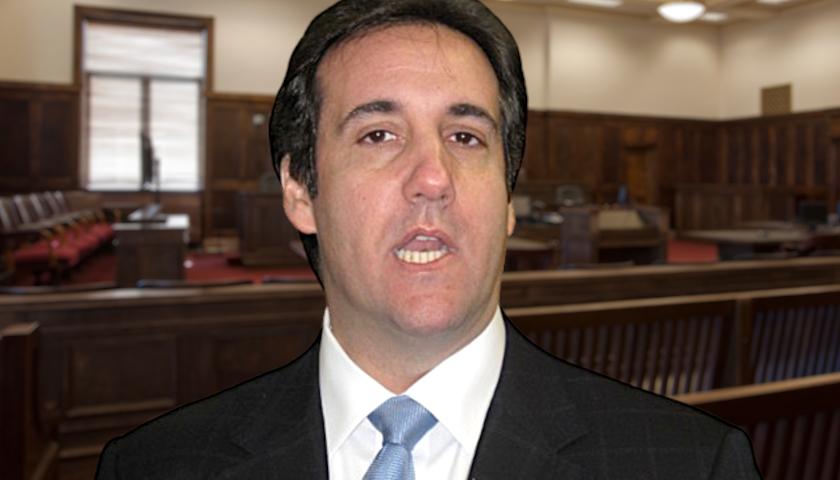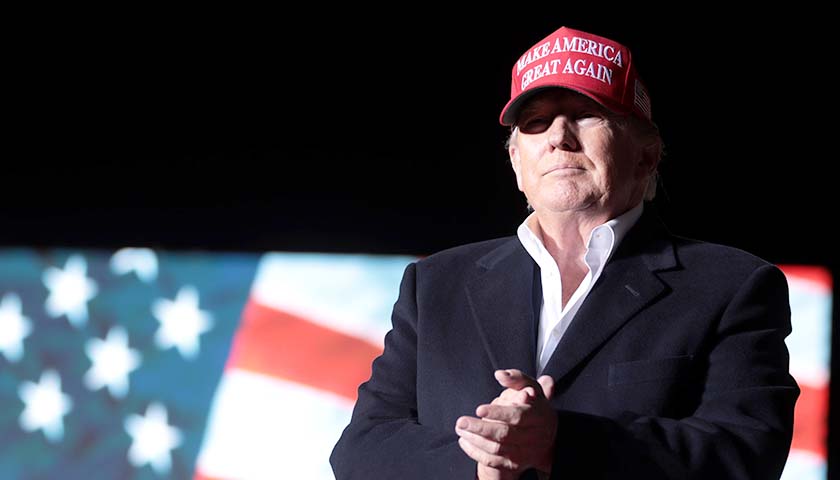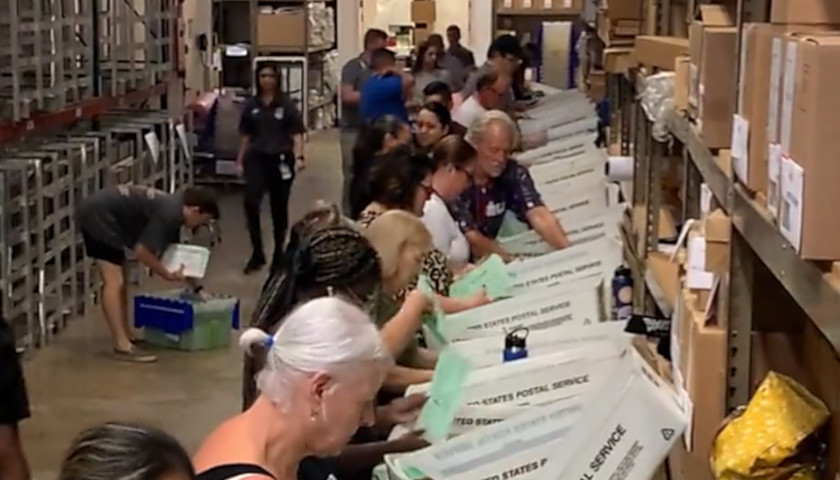by Steven Richards
Michael Cohen’s opening day of testimony—much like other witnesses—appeared to do little to bolster Manhattan District Attorney Alvin Bragg’s case against former President Donald Trump, which at least one legal expert assesses is weak.
Michael Cohen, a disbarred lawyer, convicted perjurer and critic of Donald Trump, took the stand on Monday to deliver his long-awaited testimony in the so-called “hush money” trial of his former boss but while questions about his own credibility continue to swirl.
These questions are likely to be on display on Tuesday, as Trump’s defense team gears up to cross-examine the witness.
Cohen, as Trump’s former lawyer and fixer, is likely delivered the most significant testimony to date in Bragg’s case against the former president because of his role at the center of the alleged scheme to arrange payments to both porn star Stormy Daniels and former Playboy Playmate Karen McDougal before the 2016 election in order to prevent their stories from going public.
Both Daniels, whose real name is Stephanie Clifford, and McDougal alleged they had brief affairs with Trump more than a decade ago.
On Monday, the prosecution has attempted to establish Cohen’s close relationship with his former boss, asking the witness to describe how Trump assigned tasks and establish that Trump was and wasn’t aware of, or if he directed the payments to Daniels. Establishing this fact is central to Bragg’s case.
Cohen’s testimony did this, in part. He described his former boss as a micromanager who would expect updates on his work.
Cohen testified that Trump remained in the loop on efforts to “catch and kill” at least three unflattering stories as the 2016 election approached, a story from his doorman, Playboy Playmate Karen McDougal, and adult film actress Stormy Daniels.
Under questioning from the prosecution, Cohen recounted in detail how to came to work for Trump, becoming his “fixer” and lawyer who worked directly for the head of the Trump Organization. He also described how he organized payments to buy the rights of the three stories in the run up to the 2016 election in collaboration with the National Enquirer. Buying the rights to a life story – whether eventually published or not – is not a crime.
Cohen provided little in the way on new details, yet the prosecution sought to use Cohen’s first hand experience to show Trump was a micromanager and knew of Cohen’s efforts to silence these stories. Trump’s knowledge of the payments to Daniels is central to Bragg’s case because he has charged the former president with falsifying business records to conceal another crime, in this case, alleged campaign finance violations.
Cohen also contradicted other witnesses who previously testified, but instead appeared to hurt Bragg’s case.
For example, Hope Hicks – a former communications aide for Trump – told the jury that her former boss was primarily motivated by sparing his wife and family from the salacious accusations made by Daniels, rather than concerns about the 2016 election. This claim cuts against Bragg’s main argument in the case.
However, Cohen claimed Trump’s leading motivation was the presidential campaign and not his family. “He wasn’t even thinking about Melania. This was all about the campaign,” Cohen told the jury. Trump reportedly shook his head at this statement, according to CNN.
Jonathan Turley, a professor of law at George Washington University Law School and legal commentator, criticized Bragg’s case in a column published yesterday, calling out the thin evidence, poor legal theory, and problems with relying on Cohen.
“Even for those of us who have long been critics of this case and its dubious legal theory, it has been surprising to see that the prosecutors had no more evidence than what we previously knew about,” Turley, who identifies himself as a lifelong Democrat, wrote.
“The assumption was that no rational prosecutor would base a major criminal case virtually entirely on the testimony of Michael Cohen who was just recently denounced by a judge as a serial perjurer peddling “perverse” theories in court,” he added.
Turley says this reveals Bragg’s strategy: “He is counting on the jury convicting Trump regardless of the evidence. He believes that all he needs is to check the boxes on the elements of the crime, no matter how unbelievable the vehicle.”
But Turley says even the evidence that Bragg has presented falls far short of proving the former president in any way committed a crime.
“Bragg has vaguely referred to using the denotation of payments to Daniels as ‘legal expenses’ as a fraud committed to steal the election. However, the election was over when those denotations were made. Moreover, many believe that such a characterization for payments related to a nondisclosure agreement was accurate,” he wrote, comparing this case to Hillary Clinton’s own documentation of payments for funding the Steele dossier.
Cohen walks in to a trial that so far has appeared to cut against Bragg. In addition to Hick’s testimony, both David Pecker, the then-publisher of the National Enquirer who helped “capture and kill” the affair stories, and Keith Davidson the former lawyer to Stormy Daniels to whom hush money was paid also gave testimony challenging the facts contained in the indictment.
Pecker acknowledged that his arrangement with Trump dated long before the 2016 and was a “mutual, beneficial relationship.” Davidson, a Los Angeles lawyer who represented Stormy Daniels and McDougal, undercut a key claim from Bragg’s case – that Trump was paying hush money misrepresented as a legal expense. Davidson instead testified it “wasn’t a payoff and it wasn’t hush money” but rather “a civil settlement agreement.”
Cohen also continues to face questions about his own credibility, which he is likely set to confront during cross examination by Trump’s defense team.
Memos reviewed by Just the News and reported in early March show that in 2018 Cohen repeatedly insisted to his own attorney that he had no incriminating evidence on Trump related to the hush money payments to adult film actress Stormy Daniels.
The contradictions between Cohen’s public statements and claims to his attorney were first reported by Just the News last year, but have fresh relevance because of Cohen’s “star witness” status. When Cohen was on trial himself in August 2018, he testified the payments to Daniels were “in coordination with and at the direction of a candidate for federal office,” referring to Trump. Yet, these claims stand in contrast to the account he gave his lawyer, Robert Costello, in 2018 before his trial took place, according to the memos reviewed by Just the News.
But, these memos are just a fraction of the baggage Cohen is bringing to Trump’s hush money trial in New York—including previous convictions for lying to Congress, tax evasion, and bank fraud. Another blow to Cohen’s credibility is that Cohen and his lawyer were scolded last year by a federal judge for a court filing that included three fake citations generated by the Google Bard AI tool, Just the News reported.
Trump’s legal team previously asked Judge Merchan in March to block both Cohen’s testimony because of his previous perjury conviction and allegations he lied in Trump’s civil fraud trial last year. Then, later the same week, another judge, who was reviewing Cohen’s request for early release, suggested Cohen may have committed perjury once again in his testimony at that fraud trial.
On Tuesday, the prosecution is set to finish questioning Cohen. Following this, it is likely Trump’s defense team will begin their cross examination, which will focus on discrediting Cohen as a witness – the central witness of Bragg’s case.
“This is how they’re going to make their case on behalf of their client. They are going to try to paint Michael Cohen as a liar who is out for revenge against his former boss,” CNN Chief Legal Correspondent Paula Reid said.
– – –
Steven Richards joined Just the News in August 2023 after previously working as a Research Analyst for the Government Accountability Institute (GAI) in Tallahassee, Florida. He is a two-time graduate of Florida State University with a Masters in Political Science and a B.S. in International Affairs.
Photo “Michael Cohen” by IowaPolitics.com. CC BY-SA 2.0.





